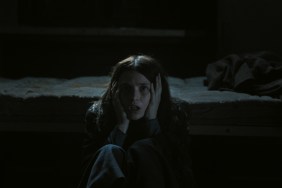
4 out of 10
Cast:
Jennifer Aniston as Sandy
Kate Hudson as Jesse
Jason Sudeikis as Bradley
Britt Robertson as Kristin
Julia Roberts as Miranda
Timothy Olyphant as Henry
Shay Mitchell as Tina
Hector Elizondo as Lance Wallace
Sarah Chalke as Gabi
Cameron Esposito as Max
Margo Martindale as Flo
Aasif Mandvi as Russell
Robert Pine as Earl
Jack Whitehall as Zack
Ella Anderson as Vicky
Jessi Case as Rachel
Loni Love as Kimberly
Lucy Walsh as Jody
Caleb Brown as Mikey
Brandon Spink as Peter
Owen Vaccaro as Charlie
Ayden Bivek as Tanner
Beth Kennedy as Gwenda
Brittany Belt as Beth Anne
Grayson Russell as Tommy
Remy and Charly Briggs as Baby Katie Zim
Jennifer Garner as 2nd Lt. Dana Barton
Directed by Garry Marshall
Mother’s Day Review:
We’ll never know all that our mothers do for us or exactly what it meant to be our mom, and if we were truly decent human beings, we would treat every day as Mother’s Day, so argues Garry Marshall’s (New Year’s Eve) latest holiday paean. But true as that may be, it’s not particularly insightful or original and without either of those qualities, there’s not much you can dramatize about the notion.
If such days really were greeting card company excuses for selling more merchandise, Marshall’s film is the cinematic equivalent of the same, with about the same level of banality. Following the lightly interrelated movements of a divorce, an adoptee, a woman estranged from her mother and a widower raising a family without a mother, the heart of Marshall’s film is in the right place but it has no brain. Mother’s Day is not funny or entertaining in any way, but it makes up for it by being incredibly unoriginal.
Theoretically, if you squint really, really hard, Marshall uses the film to look at the variety of ways mothers affect the lives of their children, in their presence and absence, and the importance they have on the lives they nurture. That is a very vague concept, however, and Marshall twists it out of all semblance of rationalism in order to use it as a vehicle for delivering bad comedy.
The versions of motherhood which are on display are easily simplified constructs recognizable from any of a thousand similar characters. One can almost picture Marshall and his writers throwing around ideas like ‘this character from show A and this character from show B’ and little else, as bland direction leaves actors twisting in the wind, guessing at what they’re supposed to be feeling.
This is an expected side effect of the ensemble, patchwork nature of the set-up, but with fewer storylines than previous films, each individual effort must stand on its own legs better. Unfortunately, those legs are really, really wobbly. Aniston and Hudson fare decently – perhaps because they always speak as themselves regardless of character or perhaps because they’ve had the most experience with delivering dreadful dialogue – but most of the rest of the cast seems lost somewhere between bewildered and bored.
It could be a side-effect of the vignette style that most of the actors have too little time with their director or characters to figure out who their supposed to be on screen, leaving them little option with the dialogue but to just say it and hope for the best.
Sudekis in particular seems to be reading from cue cards, each line seeming to end on a question mark as if to ask ‘was that how it should sound?’ As a recent widower mourning his deceased wife’s death in combat, he has by far the heaviest storyline to deal with, but Sudekis has proven himself a capable dramatic performer elsewhere which suggests the faults here like more likely behind rather than in front of the camera.
And those are the good elements. Mother’s Day doesn’t so much play with stereotypes as luxuriate in them like a billionaire rolling around in all his money, from Margo Martindale’s prejudiced Texas mom to Shay Mitchell’s vapid trophy wife.
The rest of the film is little better, replete with bad lighting, bad effects and bad gags. Hudson and company flailing about in an out-of-control RV looks about as real as the frequent Skype conversations (a convention which should be avoided at all cost – actors talking into a computer screen are robbed of life, actors talking on a phone can at least move around and do things). Slapdash doesn’t begin to do it justice.
It’s not as if any of these films were ever particularly deep character studies or compelling dramas in their own sake. If they existed for any reason it was for audiences to say ‘look who they got for this part.’ If they got away with it, it was by cutting from storyline to storyline fast enough to keep viewers off-balance and unaware what they were really watching.
By doing away most of its ability to do those things, Mother’s Day has become a more focused version its predecessors which has only laid all of the enterprise’s problems bare. This idea was a shallow well when it first started; three trips to it has basically emptied all the water out.
Mother's Day
-
Mother's Day

-
Mother's Day

-
Mother's Day

-
Mother's Day

-
Mother's Day

-
Mother's Day

-
Mother's Day

-
Mother's Day

-
Mother's Day

-
Mother's Day

-
Mother's Day

-
Mother's Day

-
Mother's Day

-
Mother's Day










